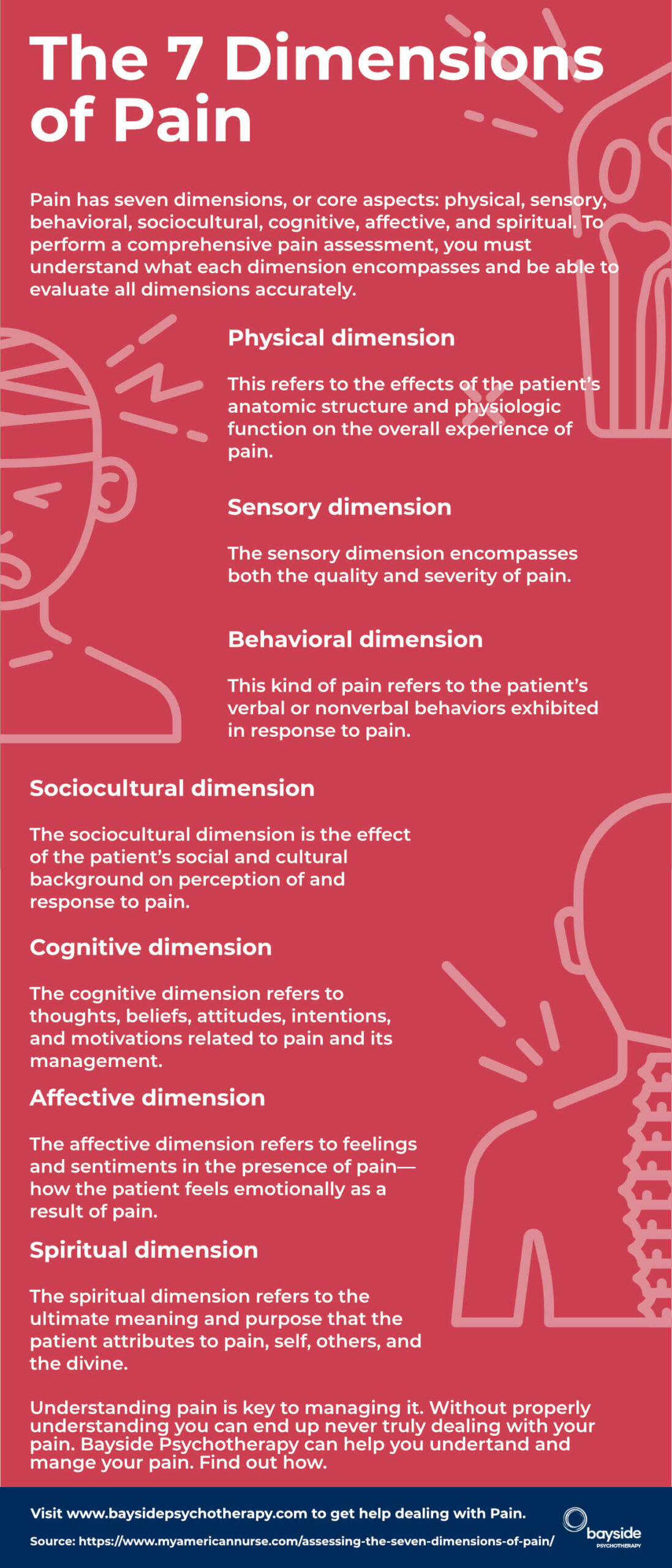Hypnotherapy, Counselling & Mindfulness Meditation for Chronic Pain
Until you’ve experienced the grinding, exhausting prison of chronic pain, it is hard to understand how much it affects your quality of life. Your sleep suffers, you feel constantly irritable, and even trivial activities drain your energy until it’s hard to imagine how you’ll go on. Depending on the cause of the persistent pain, there may be medical interventions that offer help. But often, sufferers need to accept that chronic pain management will be part of their lives indefinitely.
You may think that chronic pain would generally have a clear physical source, but in fact, our bodies are not that simple. Pain management is a complex and constantly evolving field. Concepts like neuroplasticity are highlighting more and more the connection between the mind and physical symptoms — and the capacity to control the latter with the former. Mindfulness, counselling and hypnotherapy are increasingly being employed to retrain how pain signals are registered by the brain.
The trained therapists at Bayside Psychotherapy are skilled in various counselling methodologies that may be helpful in treating people to manage their chronic pain. Although you should always maintain regular medical oversight, getting help to boost mental resilience may also be very empowering for people living with chronic pain.
What is Pain Management?
Pain Management focuses on the evaluating, diagnosing and the treatment of pain. It is important to work closely with Pain Management health professionals such as the therapists at Bayside Psychotherapy. The first step is in recognising that most pain conditions are complex and are often influenced by physical, psychological, and environmental factors. Pain affects our daily lives so it’s important to take a comprehensive approach to reduce pain in individuals and provide effective pain relief. The goal is not to only reduce & eliminate pain but to improve the quality of life for those suffering.
Here are a few approaches in pain-management:
- Pharmacotherapy
- Interventional Procedures
- Physical Therapy
- Behavioural Therapy
- Alternative Therapies
- Education
- Multidisciplinary Programs
Pain can be categorised as acute pain (short-term, often due to an incident or injury) or chronic pain (persisting pain for more than 3-6 months, even after the initial cause or injury is healed). The approach to managing pain may vary based on the duration and nature of the pain. Persistent pain conditions require a pain management plan to overcome and manage the underlying cause. If you are experiencing significant or persistent pain then we recommend you consult with one of our health care professionals to discuss treatment options.

Need pain management hypnotherapy?
Connect With a Therapist
What Is The Treatment for Chronic Pain at Bayside Psychotherapy?
At Bayside Psychotherapy, we know there’s no one-size-fits-all solution. Our experienced therapists draw from various therapy traditions to create a customised program to suit you. Some of the approaches we may apply include meditation exercises, psychoanalytic psychotherapy, or hypnotherapy, or neuro-linguistic programming (NLP). Our therapists will work with you on your pain threshold, as well as addressing feelings of sadness and loss connected to chronic pain, and other related issues — such as techniques that may help with managing family and work responsibilities while experiencing pain.
What is Interventional Pain Management?
Interventional Pain Management is a specialised field of medicine that health professionals use to diagnose and provide effective pain treatment. Rather than just prescribing medications, this approach uses techniques to directly address the pain’s origin.
Do you have any questions for us? Get in touch with us through our online contact form.
Call Bayside Psychotherapy on (03) 9557 9113 to find out if we’re able to help you. Your call is completely confidential, and there’s absolutely no obligation.
You can also book an appointment by using our online booking form for online appointments. Or, if you prefer, you can book an in-clinic session.
Self-hypnosis may also work well when used in conjunction with counselling. You can download our Pain Management Self Hypnosis recording from our website.
Mindfulness therapy and counselling may be able to help you manage your pain.
What Are the Consequences of Chronic Pain?
Many people who live with pain find it very difficult not to sink into depression. When pain is unrelenting, and physical and emotional exhaustion can lead to low mood, sadness, anger, hopelessness, helplessness, depression and a loss of motivation. Joy and happiness can seem to be distant memories.
Individuals with chronic pain often avoid movement and taking part in activities for fear of exacerbating their symptoms. This leads to a cycle of avoidance and immobility which simply worsens the pain rather than making it better, as well as putting them at risk of social isolation.
When people experience pain over a long period of time, their neural pain receptors undergo changes that make them hypersensitive. Basically, this means your nervous system perceives pain when there is no actual danger of tissue damage — or the pain that is experienced is disproportionate to the damage that’s occurring. Excess muscle tension from anxiety can also create further psychological and physical distress.
Medication can make a big difference but it also comes with its own set of consequences, and some people need to avoid painkillers. It makes sense to equip yourself with as many strategies as possible to maintain your mental health when your body is under pressure. Many people also turn to therapeutic interventions to help them wean themselves off painkillers. Is it time for you to get help breaking these cycles?
Mindfulness therapy and counselling may be able to help you manage your pain.
Let’s work together to find a way that may help you to better cope.

What’s Treatment for Chronic Pain at Bayside Psychotherapy?
At Bayside Psychotherapy, we know there’s no one-size-fits-all solution. Our experienced therapists draw from various therapy traditions to create a customised program to suit you. Some of the approaches we may apply include meditation exercises, psychoanalytic psychotherapy, or hypnotherapy, or neuro-linguistic programming (NLP).
Our therapists will work with you on your pain threshold, as well as addressing feelings of sadness and loss connected to chronic pain, and other related issues — such as techniques that may help with managing family and work responsibilities while experiencing pain.
How Long Will It Take Before I Start Feeling Relief?
Some people may report that their ability to ‘control’ their pain responses improve after just a few sessions while others may need much more treatment before they’re able to achieve results. As with any therapy, every client will have different circumstances. The cause, duration and intensity of the chronic pain will all affect treatment outcomes, as well as what you need to be able to accomplish in your day to day life, and what medical interventions you’re also undertaking.
We pride ourselves on our flexibility and collaborative approach to treatment. Your therapist will consult with you regularly to make sure your treatment is working, and adjust as necessary. Our goal is to find the best combination of treatment approaches for your needs.

Note: Whilst we will do our best to assist you, we rely on our clients’ full commitment to and participation in the treatment process to optimise results. Although some of our therapists work with people presenting with this condition, no guarantees of any outcomes can be made.
Reception Phone Hours
- Monday 8:30am to 5:30pm
- Tuesday 8:30am to 5:30pm
- Wednesday 8:30am to 5:30pm
- Thursday 8:30am to 5:30pm
- Friday 8:30am to 5:30pm
Closed on public holidays
Choose your own date and time for an online or in-clinic session
Therapist Hours
- Monday 8:00am to 8:00pm
- Tuesday 8:30am to 8:00pm
- Wednesday 8:30am to 8:00pm
- Thursday 8:30am to 8:00pm
- Friday 8:30am to 8:00pm
- Saturday 8:00am to 6:00pm
Closed on public holidays








